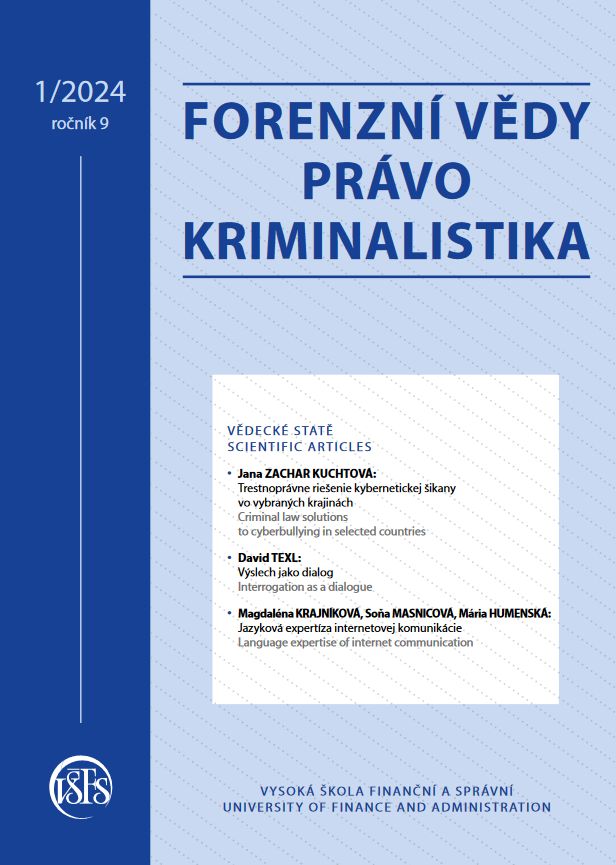Dokazování v trestním řízení
Evidence in criminal proceedings
Author(s): Jiří NovotnýSubject(s): Law, Constitution, Jurisprudence, Criminal Law, Administrative Law
Published by: Vysoká škola finanční a správní, a.s.
Keywords: proofing; evidence; means of proof; evaluation of evidence; the subject of proof; administrative procedure; criminal proceedings
Summary/Abstract: In proceedings before the court, the public prosecutor and the accused may propose and present evidence to support their positions. Law enforcement authorities evaluate the evidence according to their inner conviction based on a careful consideration of all the circumstances of the case individually and in their aggregate. When making a decision in the main trial, as well as in public, custodial and closed sessions, the court may také into account only the evidence that was presented during this hearing. The mentioned three principles represent the introductory principles of evidence in criminal proceedings, as the legislator anchored it through legal norms in the introductory provisions of the criminal code. However, the legislator does not present all the characteristics of the evidence process in the criminal code, and these must be supplemented by jurisprudence and court jurisprudence. However, the terms of jurisprudence in the matter of proof are not adopted by the legislator into the legal system quite consistently, and in some cases even the legislator himself does not distinguish the terms of jurisprudence in any way. The aim of the contribution is the specification of evidence in criminal proceedings by the interpretation of characteristic procedures and individual evidence institutes in law, which is supplemented by the interpretation of legal norms and the use of evidence institutes, which are presented by the legislator in administrative law.
Journal: Forenzní vědy, právo, kriminalistika
- Issue Year: 9/2024
- Issue No: 1
- Page Range: 6-18
- Page Count: 13
- Language: Czech

